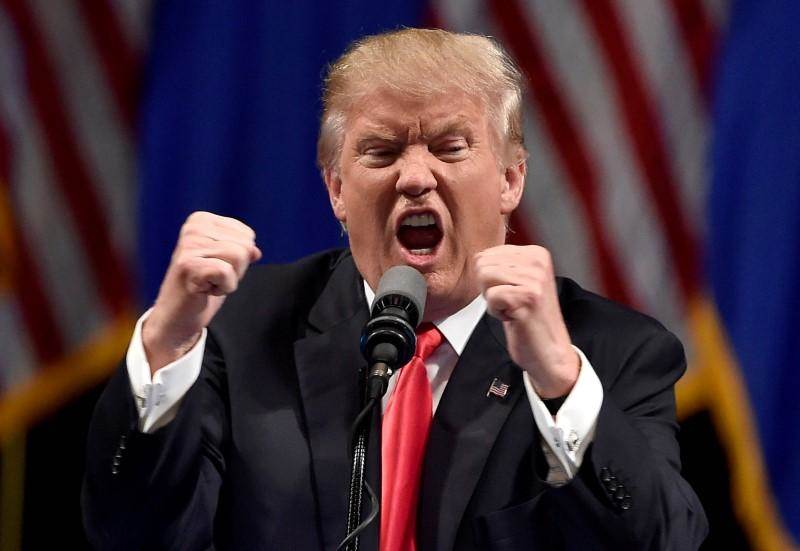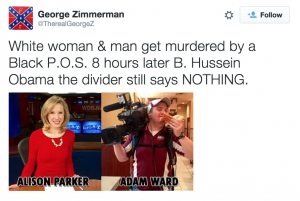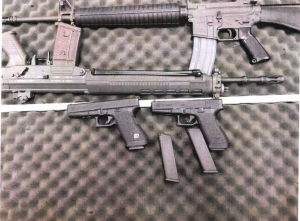The Discussion of White Supremacist Terror Ignores the Transnational Nature of It
Betsy Woodruff has the scoop that, last year, the National Counterterrorism Center set up a small group focusing on what the article calls “domestic terror.”
In early 2018, the official said, the head of the NCTC directed lawyers from the intelligence community to revisit its understanding of the law that governs it. A Democratic official on the House Intelligence Committee said Congress urged the Center to conduct the analysis—and fast.
By the summer of 2018, the lawyers concluded that NCTC could use its considerable resources to analyze purely domestic threats, as long as it did so to help the FBI and the Department of Homeland Security (DHS). NCTC officials shared that view with senior officials in the Office of the Director of National Intelligence that oversees the NCTC, and they didn’t get any pushback, per the official. Then the battleship started to turn—just a tad.
In the year since then, the official said, analysts in an NCTC entity that focuses on the radicalization and mobilization of potential foreign terrorists have been working on matters related to domestic terrorism.
NCTC officials have also begun setting up “a small element” in the Center’s Directorate of Intelligence focused on the domestic terror threat, the official said. The official noted that these efforts are not large-scale, and that they have had “to beg and borrow from different areas” to corral resources for the new domestic terrorism work.
She goes on to quote former national security officials applauding the move and civil libertarians raising cautions. But she herself admits the bigger issue: what has always been bracketed off (including in early NCTC documents, Woodruff notes) as “domestic” is not.
To be sure, there’s a nomenclature problem when it comes to domestic and international terrorism, as hateful ideology can cross-pollinate between the U.S. and other countries. For instance, the New Zealander who murdered 51 people at two mosques cited American white supremacist Dylann Roof as an inspiration. Then the terrorist who allegedly murdered a worshiper at a synagogue in Poway, California cited the Christchurch shooter. When it comes to hate, Western nations have open borders.
The really awkward thing, which Woodruff implicitly acknowledges, is that the US exports white supremacist ideology and funding — whether through the networking of Steve Bannon or the Twitter feed of Donald Trump — in much the same way Saudi Arabia enabled Islamic terrorism before 9/11.
I agree with Hina Shamsi, quoted in Woodruff’s piece, that we need transparency about this more than anything. But the goal should be to understand what actually occurring in the government’s efforts to combat terrorism, and from that to learn what is necessary to protecting against terrorism.
Since 9/11, the government has used the existence of an international network — at first a network of internationally deployed operatives and money, and then a network existing in the vacuum created in Iraq and Syria in the wake of the Iraq war interacting with people in the US via social media — behind Islamic extremism as justification to treat brown terrorists differently than it treats white terrorists. Through that period — a period when white supremacist terrorism wasn’t being encouraged by the President — the FBI did a pretty good job of finding white supremacist terrorists.
The lesson from that fact should have been that all this infrastructure targeting brown terrorists was likely unnecessary, though it may have been a crutch for a time, because the government was (and may still be) culturally unable to bring the same nuance to investigations of terrorism by non-white non-Christians.
In recent years, some things have changed, even beyond Trump. The FBI has started playing games with its numbers (first inventing a category, Black Identity Extremism, to justify treating brown non-terrorists as terrorists, then eliminating that category and subsuming it under a racially motivated extremism category that hides the growth of white supremacist terrorism). Trump has eliminated some efforts to pursue white supremacist terrorism. Twitter has struggled with applying its standards equally when that would mean eliminating elected officials, including Trump, from the platform.
Given the normalization under Trump of white supremacist terrorism, it’s not clear whether the FBI can stay ahead of the danger anymore, as they were able to before Trump and his allies normalized all this.
But that suggests the problem is not about intelligence gathering, but is instead about the cultural factors that permit some kind of terrorism to thrive.
We’re only going to understand that, however, if we have real data to make the case.



